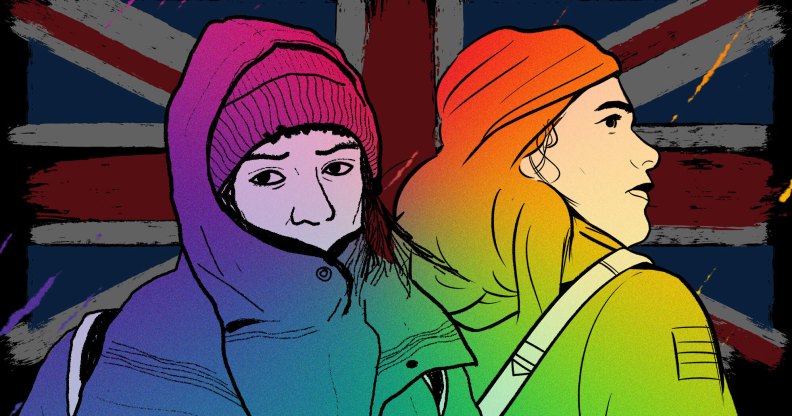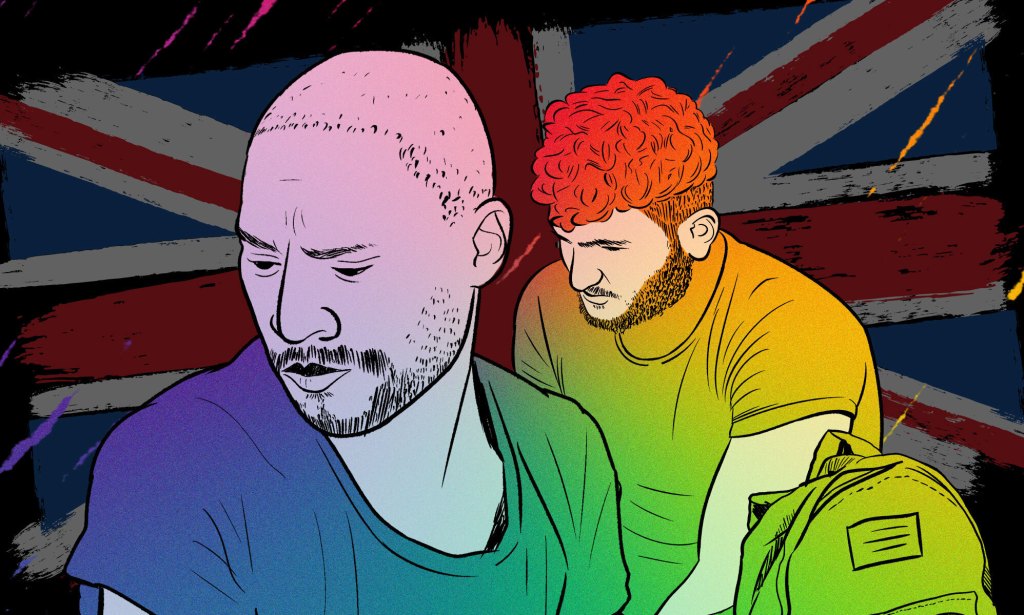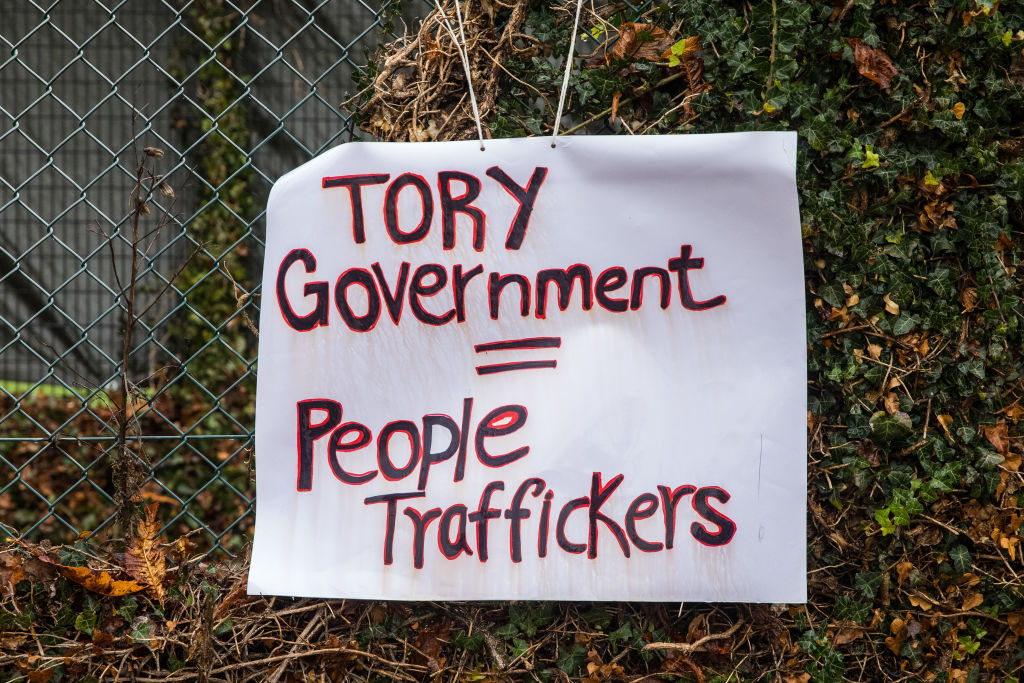LGBTQ+ migrants forced to share locked rooms with violent homophobes in UK detention centres

The government’s Illegal Immigration Bill is set to pass into law. (PinkNews)
The government's Illegal Immigration Bill is set to pass into law. (PinkNews)
LGBTQ+ people are experiencing homophobic abuse and violence in the UK’s immigration detention system, new research has uncovered.
The pilot study, conducted by University of Brighton academic Dr Laura Harvey for asylum advocacy group Rainbow Migration, details instances of abuse on UK soil since 2016.
Of the five people interviewed, three said they had been targeted directly with verbal homophobic bullying, while two were the victims of attempted physical attacks from others in the immigration detention system.
Two participants were forced to share a locked room at night with somebody who subjected them to homophobic bullying.
Thousands of people are detained by the UK government each year while the Home Office resolves their immigration status, but little is being done to protect the most vulnerable, Rainbow Migration says.
In 2016, the government’s Adults at Risk in Immigration Detention policy acknowledged that trans and intersex people are “particularly vulnerable to harm” and should not be detained – but gay, lesbian, bisexual and non-binary people were not included.
Usman, a gay man interviewed for the study, said he was attacked by a person he was sharing a room with after being subjected to repeated threats.
“He spat on my face for being a gay,” Usman, originally from West Africa, said.
He reported the incident to authorities, however he was not moved to a new room until his roommate threw a heavy object at him in an attempted physical attack.
Johnson, who is non-binary, was told being gay is “a sin for God” by the person they were forced to share with.
Despite reporting threats and homophobic bullying to staff, Johnson was not moved to a new room.

More broadly, participants reported mixed experiences with staff in immigration detention. Some had positive encounters while others faced verbal abuse and misgendering.
One person, Michael, recounted a particularly harrowing interaction they had with a staff member.
“The person… told me that if not for the system in the UK, that if I was still in my home town, that he believed that I would [be] walking in the street, like an outcast… that by now my penis would be chopped off because of those forms of stuff I’m practising, that I’m just lucky that I found myself in here.”
Michael described the experience as “disheartening”, saying he became “more depressed at night” and felt “ashamed”.
Despite that, Michael decided not to report the incident out of fear that doing so would lead to negative consequences.
Detention immigration ‘not safe’ for LGBTQ+ people
Dr Laura Harvey, the researcher who conducted the study, said the findings prove once again that detention centres are not safe for LGBTQ+ people.
“LGBTQI+ people who are fleeing homophobic violence and abuse often experience really serious trauma as a result of those things, and being locked in a space – often with people who are hostile to them – makes that worse for them,” she says.
“[I spoke to] participants whose partners had been killed in homophobic attacks who then were made to share rooms that were locked overnight with people who were being homophobic towards them, in one case, violently attacked by the person.

“Although some participants talked about finding staff to support them, it seemed to me that the possibilities for staff intervening were not adequate at all.”
Leila Zadeh, executive director of Rainbow Migration, said the findings of the study are “disheartening” but unsurprising.
“We’ve known for many years now that immigration detention centres are dangerous places for LGBTQI+ people,” she says.
“People who are seeking asylum because they’ve fled persecution in other countries often have a number of mental health conditions including depression, post-traumatic stress disorder, anxiety and other matters, and that is exacerbated inside detention centres.
“We know it gets worse if people are detained for 30 days or longer. We do see people who come out of detention and their mental health is much worse than it was before they went in.
“The human cost is enormous and it’s adding to the trauma that people have already experienced, which is the last thing they need.”
She is now pleading with the government to take immediate action.
“This government needs to realise that detention is not safe for LGBTQI+ people and that detention without a time limit makes the whole situation far, far worse.
“Ultimately we would like to see an end to immigration detention, but in the meantime, if the government is not going to do that they should end the detention of all LGBTQI+ people.”
A Home Office spokesperson told PinkNews that it takes the welfare of people in immigration detention seriously.
“Immigration detention makes a limited but essential contribution to tackling illegal migration and protecting the public, decisions to detain are made on a case-by-case basis,” a spokesperson said.
“The Home Office takes the welfare and safety of people in our care very seriously. Guidance ensures staff are aware of the actions required to meet the needs of LGBT individuals in detention and welfare teams are present at every site to provide support specific to their needs.”

